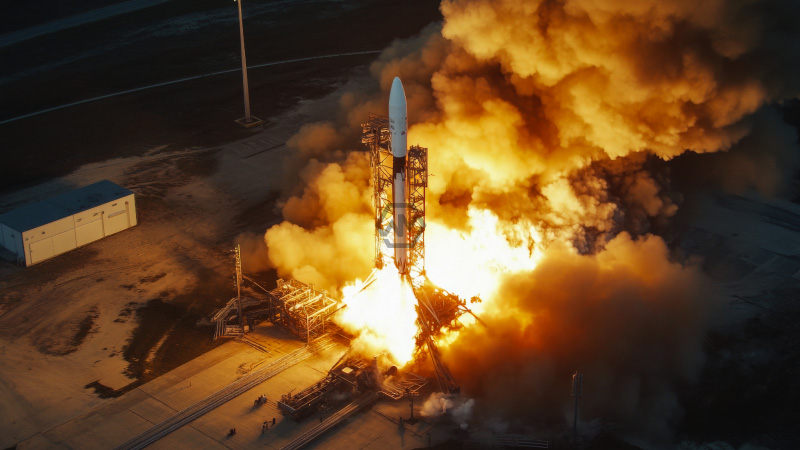- Germany’s Isar Aerospace launched its Spectrum rocket from Norway, but it exploded seconds after takeoff.
- The test was intended to collect flight data, and the company considers it a learning success.
- Europe aims to compete with U.S. and Chinese firms in the growing commercial space industry.
The failed launch of Spectrum, Europe’s first privately funded orbital rocket, highlights both the promise and the challenges of the continent’s growing space sector.
The test flight was meant to gather crucial data, and the company had already stated that reaching orbit was not the goal. Despite the setback, the mission marks a significant moment for Europe’s ambition to achieve independent space access without relying on Russia or the U.S.
Setback for Europe’s Space Ambitions as Spectrum Rocket Fails
The launch of Spectrum was a historic moment for Europe, as it marked the first commercial attempt to send an orbital rocket from the continent. However, the failure underscores the difficulties of competing in the global space race, where U.S. giants like SpaceX and China’s rising space industry dominate.
Despite the explosion, Isar Aerospace remains optimistic, emphasizing that the data collected will contribute to improvements in future launches. The company had set a low benchmark for success, stating that a flight of 30 seconds would already be a significant achievement.
Europe’s space industry has faced multiple delays, including setbacks with the Ariane 6 and Vega-C rockets. The push for private-sector involvement is part of a broader effort to gain independent access to space, reducing reliance on Russian and American launches.
Other European firms, such as Rocket Factory Augsburg and PLD Space, are also working on developing commercial spaceflight capabilities. Coastal launch sites across Europe, including in Sweden and Portugal, are being explored to support future missions.
While the Spectrum rocket failed to complete its flight, the mission represents a crucial step in Europe’s journey toward independent space access. Each attempt, even unsuccessful ones, helps refine the technology needed for future successes.
“Success is not final, failure is not fatal: it is the courage to continue that counts.” – Winston Churchill



